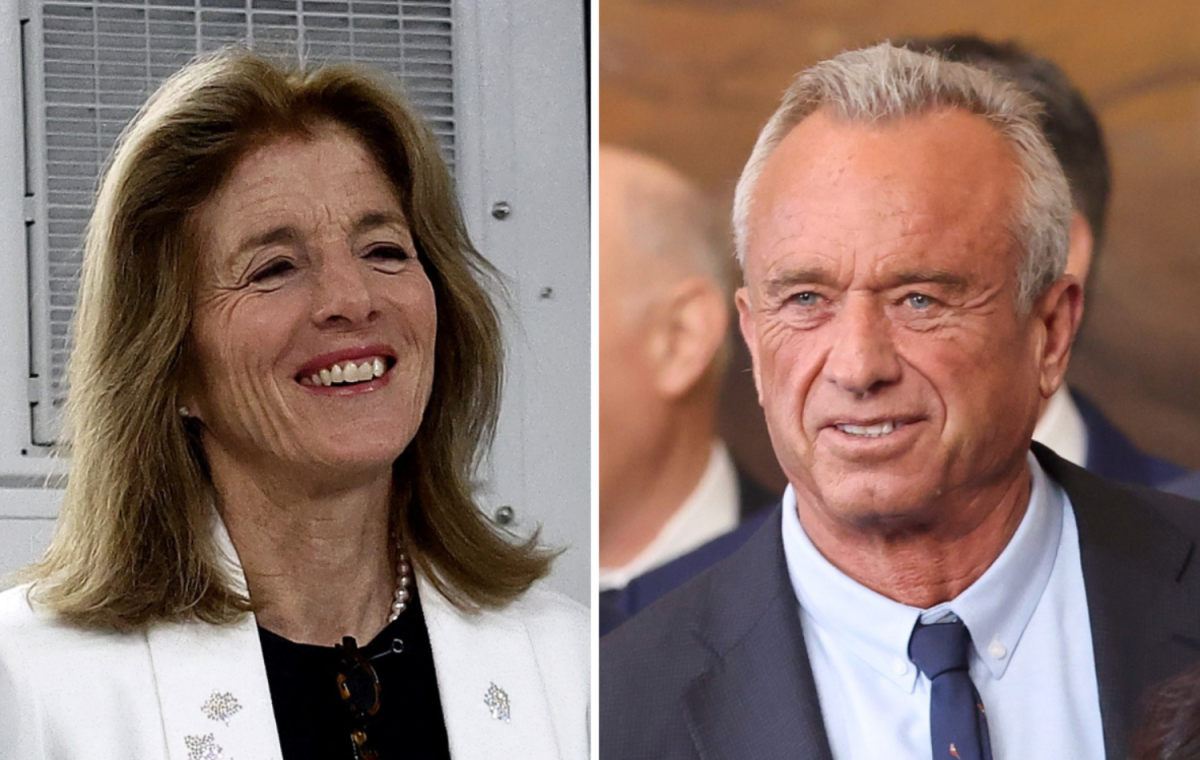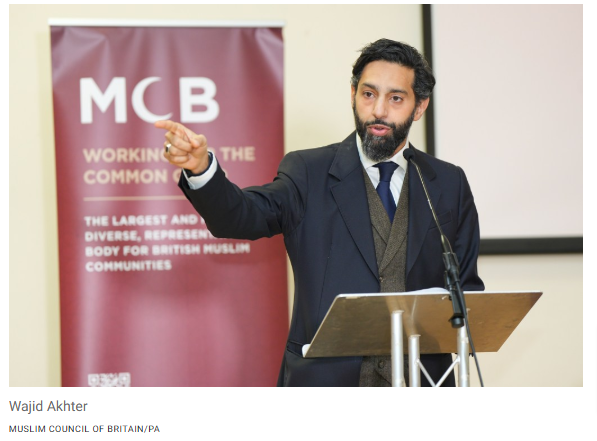-
Posts
9,982 -
Joined
-
Last visited
Content Type
Events
Forums
Downloads
Quizzes
Gallery
Blogs
Everything posted by Social Media
-

China Accuses US of Cyberattack That Disrupted DeepSeek AI
Social Media posted a topic in World News
A major cyberattack that forced DeepSeek to halt new registrations for its groundbreaking AI model, R1, originated in the United States, according to Chinese state media. The attack, which targeted user credentials and attempted to breach the system, came just days after DeepSeek’s rapid rise in popularity sent shockwaves through the Western tech industry. DeepSeek, a Chinese startup, introduced its AI model, R1, last week, immediately drawing global attention. The model quickly climbed to the top of Apple’s free app downloads, surpassing OpenAI’s ChatGPT. Unlike its Western counterparts, DeepSeek claims to have developed its model at a fraction of the cost, using significantly less computing power and avoiding reliance on expensive Nvidia chips. As reports emerged over the weekend that R1 rivaled the most advanced AI models from tech giants like OpenAI, Google, and Meta—while also being open-source and cost-effective—investors reacted sharply. The fear of competition triggered a massive sell-off in companies such as Nvidia and Oracle, leading to a near-trillion-dollar loss in the U.S. stock market on Monday. Nvidia, a key supplier of AI training chips, was among the hardest hit. On Tuesday, DeepSeek announced it had been targeted by a large-scale cyberattack. The company responded by restricting new registrations, allowing only users with Chinese phone numbers to sign up while barring international accounts. A notice on its app informed users that the attack was ongoing but did not specify its origin. “Due to large-scale malicious attacks on DeepSeek's services, we are temporarily limiting registrations to ensure continued service,” the message read. “Existing users can log in as usual. Thanks for your understanding and support.” By Wednesday, DeepSeek confirmed it had identified the issue and was working on a fix. Shortly after, Yuyuan Tantian, a social media account linked to China’s state broadcaster CCTV, claimed the cyberattack had been traced to the United States. Citing the Chinese cybersecurity firm QAX Technology Group, the report described an initial wave of attacks aimed at overwhelming DeepSeek’s servers with excessive traffic. Later attacks reportedly became more targeted, using brute-force methods to crack user passwords in an effort to analyze the AI model’s functionality. “All the attack IPs were recorded, all are from the US,” said Wang Hui, a cybersecurity expert at QAX, in a statement to CCTV. The accusations add to ongoing tensions between China and the U.S. in the field of artificial intelligence and cybersecurity, where competition over technological supremacy continues to escalate. Based on a report by The Independent 2025-01-31 -
Large crowds in Khan Younis ahead of release of Arbel Yehoud and Gadi Mozes; already freed hostage Agam Berger reunites with parents. There are chaotic scenes in southern Gaza ahead of the release of hostages Arbel Yehoud and Gadi Mozes. The vehicle that appears to be carrying the hostages struggles to inch its way through the large crowd of onlookers as sirens wail. Horrific: The moment Agam Berger was freed—surrounded by Hamxs cameras. A staged spectacle. Based on a report by BBC & TOI 2025-01-31
-
A regional jet operated by American Airlines collided with a U.S. Army Black Hawk helicopter in midair near Reagan Washington National Airport around 9 p.m., according to a preliminary update from the Federal Aviation Administration (FAA) on Wednesday evening. Authorities have launched a search-and-rescue operation in the Potomac River, where one or both aircraft may have crashed. The Bombardier CRJ700, which was en route from Wichita, Kansas, was carrying 60 passengers and four crew members when the collision occurred. The aircraft, fitted with 65 seats, has 44 in the main cabin, 12 in the main cabin extra section, and nine in first class, according to American Airlines. U.S. Senator Roger Marshall of Kansas confirmed the number of passengers aboard and expressed his concern, saying, "My prayer is that God wraps his arms around each and every victim and that he continues to be with their families. There are no words that can make telling this story any easier. I ask the world to join me in praying for Kansas this evening, the first responders, rescue crews, and all those involved in this horrific accident." Transportation Secretary Sean Duffy, who was sworn in earlier the same day, stated on social media that he was monitoring the situation from the FAA headquarters. Emergency responders are actively searching for survivors in the river, with NBC 4’s Julie Carey reporting that four victims have been taken to the North Boathouse Fire Station at Reagan National Airport for medical attention. Officials confirmed that the helicopter involved in the collision was an Army Black Hawk. The circumstances leading up to the crash remain unclear, and authorities are continuing their investigation into the incident. Based on a report by NBC News 2025-01-31
-

Israel Hamas War the Widening Middle East Conflict
Social Media replied to Social Media's topic in The War in Israel
Hostages Update: Tomorrow three Israeli hostages will be released from Hamas captivity. Reports indicate five Thai hostages will also be released. -
President Donald Trump has signed a memorandum instructing the heads of Homeland Security and Defense to expand the migrant detention center at the U.S. naval base in Guantanamo Bay, Cuba. The directive orders officials to bring the facility "to full capacity to provide additional detention space for high-priority criminal aliens unlawfully present in the United States, and to address attendant immigration enforcement needs identified by the Department of Defense and the Department of Homeland Security." The announcement has drawn sharp criticism from the Cuban government, which has long opposed the presence of a U.S. naval base on the island. Cuban President Miguel Diaz-Canel condemned the decision, calling it "an act of brutality" to place migrants next to "known prisons of torture." Foreign Minister Bruno Rodriguez echoed the sentiment, stating that the move "shows contempt for the human condition and international law." The Guantanamo Bay naval base has been a point of contention between the United States and Cuba since Fidel Castro came to power in 1959. While the base has primarily been known for detaining terrorism suspects since 2002, it has also been used to house migrants at the Guantánamo Migrant Operations Center under various U.S. administrations. Despite Havana’s protests, the Trump administration appears unbothered by the diplomatic fallout. With the State Department now led by Marco Rubio, the former Florida senator whose family left Cuba in the 1950s, tensions between Washington and Havana seem unlikely to ease. The move to expand detentions at Guantanamo is likely to further strain relations, yet it aligns with the administration’s broader immigration enforcement agenda. Based on a report by BBC 2025-01-30
-
In a powerful video posted to YouTube on Tuesday, Caroline Kennedy, the only surviving child of former U.S. President John F. Kennedy, publicly denounced her cousin, Robert F. Kennedy Jr., calling him a "predator" and urging senators to reject his nomination as President Donald Trump’s pick for Secretary of Health and Human Services. Reading from a letter addressed to U.S. senators, Caroline Kennedy delivered a damning critique of her cousin’s character and actions, stating that his behavior "has cost lives" and alleging he preys on vulnerable individuals, including parents of sick children. Robert F. Kennedy Jr., known for his controversial stance on vaccines, faces a significant hurdle in his confirmation hearings scheduled for Wednesday. He is set to appear before both the Senate Finance Committee and the Health, Education, Labor, and Pension Committee. His confirmation, which requires a simple majority in the Senate, has drawn fierce opposition due to his views on public health, his past accusations of voter fraud in New York, and his divisive stance on abortion. With all Senate Democrats and three Republican votes needed to block his appointment, the hearings promise to be contentious. In her letter, Caroline Kennedy did not hold back, accusing Robert F. Kennedy Jr. of exploiting the fears and desperation of those in need. She specifically highlighted his outspoken skepticism of vaccines, a position that she argued should disqualify him from leading the Department of Health and Human Services. “He preys on the desperation of parents, sick children, and even his own family members,” Kennedy wrote, adding that his actions were "a perverse scene of despair and violence." Robert F. Kennedy Jr. has repeatedly denied being "anti-vaccine," telling NBC News in November, “I wouldn’t take away anybody’s vaccines.” However, he has made statements that undermine public trust in vaccines, such as claiming during an interview with podcaster Lex Fridman that there are no safe and effective vaccines available. He has also criticized the rapid development of COVID-19 vaccines, asserting that he had doubts about their efficacy as early as May 2020 after analyzing early animal studies. These positions have fueled his critics’ concerns about his ability to oversee a department tasked with safeguarding public health. Caroline Kennedy also detailed what she described as troubling personal behavior, including anecdotes of Robert F. Kennedy Jr. feeding blended baby chickens and mice to his hawks. She characterized these actions as emblematic of a pattern of violence and despair, further underscoring her assertion that he is unfit for public office. Beyond his controversial rhetoric, Robert F. Kennedy Jr. has also come under scrutiny for financial conflicts of interest. According to Caroline Kennedy, he has profited significantly from lawsuits targeting vaccine manufacturers. Specifically, she pointed to his involvement in a case against pharmaceutical company Merck over Gardasil, a vaccine that prevents cervical cancer. The Associated Press reported that Kennedy earned more than $850,000 from the case last year. “In other words, he is willing to enrich himself by denying access to a vaccine that can prevent almost all forms of cervical cancer and which has been safely administered to millions of boys and girls,” Caroline Kennedy wrote. As Robert F. Kennedy Jr. prepares to face the Senate, the accusations from his cousin cast a long shadow over his confirmation bid. Whether these charges will influence the outcome remains to be seen, but they have undoubtedly added a deeply personal and dramatic dimension to an already contentious nomination process. Based on a report by Newsweek 2025-01-30
-
The UK population is projected to increase significantly over the next decade, reaching 72.5 million by 2032, according to the Office for National Statistics (ONS). This marks a rise from 67.6 million in 2022, with migration identified as the primary factor driving the growth. Net migration is expected to contribute nearly five million people to the population between 2022 and 2032. The ONS noted that the natural change, which reflects the balance between births and deaths, is projected to be around zero during this period. “The UK population is projected to grow by almost five million over the next decade. The driver of this growth is migration,” said James Robards, head of population and household projections at the ONS. In addition to population growth, the data highlights the UK’s status as an ageing society. By 2047, the number of individuals aged over 85 is projected to nearly double, reaching 3.3 million. Robards explained this trend as a consequence of the ageing baby boomer generation and ongoing improvements in life expectancy. By mid-2032, 10.3 percent of the UK population is expected to be aged 75 or older, compared to 9.1 percent in mid-2022. Net migration, defined as the difference between people entering and leaving the UK, is projected to average 340,000 per year starting from mid-2028. This represents a decline from current levels, as net migration for the year ending June 2024 is estimated at 728,000. Nevertheless, migration will remain a key contributor to the UK’s population increase. The population is expected to surpass the 70 million mark by 2026. For historical context, the UK population was approximately 40 million in 1898, reached 50 million by 1948, and crossed 60 million in 2005. The ONS also reported that the overall population of the UK is projected to grow by 7.3 percent between mid-2022 and mid-2032. This represents an increase compared to the 6.1 percent population growth recorded in the previous decade. As the country approaches these significant demographic milestones, migration and ageing will continue to shape the UK’s societal and economic landscape in profound ways. Based on a report by The Times 2025-01-30
-
In a provocative claim lacking evidence, conservative commentator Tucker Carlson accused the Biden administration of attempting to assassinate Russian President Vladimir Putin. Speaking on a recent episode of his podcast, *The Tucker Carlson Show*, the former Fox News host made the incendiary statement, drawing widespread attention and criticism. Carlson offered no proof to substantiate his extraordinary assertion. The remarks appeared to align with his pattern of making bold claims and stirring controversy, particularly regarding U.S. involvement in global conflicts. His comments come amidst ongoing tensions between the U.S. and Russia, heightened by the Kremlin's war in Ukraine and America's military aid to Kyiv. Since leaving Fox News in 2023 following the network's legal troubles over broadcasting unfounded claims about electoral fraud in the 2020 presidential election, Carlson has remained a divisive figure. He often amplifies viewpoints sympathetic to the Kremlin, including criticisms of U.S. support for Ukraine, which he has dismissed as "not a democracy." Carlson's engagement with Russian leadership has also drawn scrutiny. In February, he visited Moscow for a widely criticized interview with Putin, which many saw as lenient toward the Russian president. Later that year, in December, Carlson returned to Russia to sit down with Foreign Minister Sergey Lavrov, further solidifying his image as a controversial voice on international politics. Despite the lack of evidence for his recent accusation, Carlson's remarks are likely to fuel ongoing debates about U.S. foreign policy, its role in the Ukraine conflict, and the broader implications of his alignment with Russian narratives. Based on a report by Politico 2025-01-30
-
Labour’s opposition to robust defence spending reveals deep ideological motivations rather than financial constraints. Sir Keir Starmer’s recent promise to increase defence spending to 2.5% of GDP lacked a clear timeline, an obvious attempt to counter Prime Minister Rishi Sunak’s commitment to reach the same target by 2030. However, Labour’s pledge appears more like electoral maneuvering than a genuine commitment to bolstering the UK’s defences. For Labour to meet the Conservative goal of ramping up defence spending, an additional £87 billion annually would be required by the end of the decade. With the current sluggish economic growth, this funding would necessitate higher taxes, increased borrowing, or cuts to other vital budgets such as the NHS, welfare, or climate initiatives. Such choices do not align with Labour’s priorities, which have historically shown little regard for strengthening national defence. The nuclear debate offers a revealing lens into Labour’s stance. While Starmer publicly supports the UK’s nuclear deterrent, internal divisions within his cabinet tell a different story. In 2016, a quarter of his cabinet members, including Deputy Leader Angela Rayner and Foreign Secretary David Lammy, voted to scrap Trident. These figures, should they ever need to make critical defence decisions, cast doubt on Labour’s reliability when it comes to safeguarding the realm. Labour’s ideological approach extends beyond defence spending. For instance, the party’s opposition to even modest Conservative efforts to curb illegal immigration underscores its lack of pragmatism on issues of national security. Upon taking office, Starmer promptly reversed Sunak’s Rwanda deal—an admittedly imperfect measure but one intended to deter illegal crossings. Starmer’s proposed solution to “smash the gangs” sounds compelling but offers no tangible framework for securing borders. Labour’s foreign policy decisions further highlight its questionable strategic judgment. One glaring example is its plan to transfer sovereignty of the Chagos Islands to Mauritius, undermining Western security interests. The islands host Diego Garcia, a crucial US-UK airbase, and Labour’s decision jeopardizes its strategic importance. Starmer’s justification—that the UK was legally obligated to divest the islands—was based on a misreading of an advisory ruling by the International Court of Justice, which has no binding authority. This move smacks of virtue signaling at the expense of national security, raising doubts about Starmer’s much-touted legal acumen. Labour’s missteps are not limited to territorial disputes. The party’s decision to impose a partial arms embargo on Israel during its multi-front war against jihadist groups showcased a lack of understanding of international security dynamics. The move was framed as a response to alleged Israeli breaches of international law, yet these claims often originate from politically motivated sources. Such actions embolden Israel’s adversaries, escalating violence rather than reducing it. Furthermore, Labour’s willingness to support an International Criminal Court (ICC) warrant against Israel’s prime minister disregards the court’s jurisdictional overreach, a precedent that could one day threaten Britain’s own defences. In the face of escalating global threats, NATO and UK armed forces desperately require increased funding, as advocated by former U.S. President Donald Trump. Labour’s ideological resistance to defence spending remains a significant obstacle, leaving the UK increasingly reliant on external pressure from allies across the Atlantic. It is a sobering reality that the safeguarding of Britain’s national security, in a world fraught with instability, hinges on such external interventions. Based on a report by The Daily Telegraph 2025-01-30
-
Italian Prime Minister Giorgia Meloni has announced that she and two of her ministers are under investigation by Rome prosecutors for repatriating a Libyan warlord wanted by the International Criminal Court (ICC) in The Hague. Meloni stated on Tuesday that she believes the inquiry was triggered by a complaint from an opposition politician. In Italy, prosecutors are required to launch investigations based on complaints, but it is up to a preliminary hearing judge to determine whether charges are ultimately filed. This process can take months or even longer. The controversy stems from the arrest of Libyan warlord Mahmoud al-Masri in Turin on January 19, one day after the ICC issued an international arrest warrant against him. Al-Masri had reportedly spent about 12 days in three other European countries before arriving in Italy. However, after a court in Rome failed to confirm his arrest, he was expelled on January 21 and repatriated to Libya aboard a government plane. Meloni took to social media to express frustration over the situation, pointing out that the ICC’s warrant was issued only after al-Masri had already arrived in Italy. She also argued that the international arrest warrant had not been properly transmitted to the Italian Justice Ministry as required by law. “For this reason, the Appeals Court in Rome decided not to confirm the arrest,” she explained. “At this point, this subject was free in Italian territory, and rather than letting him free, we decided to expel and repatriate him immediately for security reasons with a flight, as happens in other similar cases,” Meloni said. She denounced the investigation, declaring, “I cannot be blackmailed. I will not be intimidated.” In addition to Meloni, Justice Minister Carlo Nordio and Interior Minister Matteo Piantedosi, along with under-secretary Alfredo Mantovani, are also under investigation. Piantedosi is expected to address lawmakers on the matter on Wednesday. Last week, he defended his decision to expel al-Masri, stating, “for urgent security reasons, with my expulsion order, in view of the danger posed by the subject.” Al-Masri is accused by the ICC of war crimes and crimes against humanity, including murder, torture, rape, and sexual violence, all allegedly committed in the Mitiga prison in Libya starting in 2015. If convicted, these crimes could carry a life sentence. The ICC has stated that the arrest warrant was transmitted to its member states, including Italy, on January 18, and that it provided real-time updates regarding al-Masri’s movements in Europe. The court also emphasized that Italy had been reminded to contact the ICC “without delay” if any complications arose regarding cooperation with the warrant. Al-Masri is known to be the leader of the Tripoli branch of the Reform and Rehabilitation Institution, a notorious network of detention centers operated by Libya’s government-backed Special Deterrence Forces. His alleged crimes have drawn international condemnation, and his expulsion by Italy has now sparked legal and political controversy within the country. Based on a report by The Independent 2025-01-30
-
Madonna has strongly criticized the Trump administration for its swift actions against the rights of LGBT+ individuals, urging her followers not to lose hope in the fight for equality. The pop icon, who has long been a vocal advocate for LGBT+ rights, called attention to a series of executive orders that have targeted transgender, nonbinary, and intersex Americans. It’s so sad to watch our new Government slowly dismantling all the Freedoms we have been fighting for and WON over the years. 🏳️🌈💔 Don’t give up the Fight! Madonna addressed these concerns on X/Twitter on January 28, making it clear that she is deeply troubled by the situation. “It’s so sad to watch our new government slowly dismantling all the freedoms we have been fighting for and WON over the years,” she wrote, accompanying her message with a rainbow flag and a broken-hearted emoji. She added a direct call to action: “Don’t give up the fight!” Madonna has long used her platform to advocate for LGBT+ rights, dating back to the 1980s when she was one of the first mainstream celebrities to bring attention to the AIDS crisis. Her latest statement comes in response to Trump’s newly signed executive order, titled “Prioritizing Military Excellence and Readiness,” which restricts transgender individuals from serving openly in the military. This policy reinstates a ban from Trump’s previous term, which had been reversed by Joe Biden in 2021. In addition to restricting military service, another executive order has directed federal agencies to rescind policies that support or acknowledge gender-affirming healthcare for transgender Americans. The directive classifies gender-affirming treatments, including puberty blockers, hormone therapies, and surgeries for those under 19, as “mutilation.” As the Trump administration continues implementing policies that impact the LGBT+ community, Madonna’s message serves as a rallying cry for those fighting to maintain the rights gained over the years. Based on a report by The Independent 2025-01-30
-
A leaked Home Office report has identified misogyny and violence against women as significant gateways to extremist beliefs, urging the government to shift its focus from ideology to concerning behaviors. According to the report, obtained by the Policy Exchange think tank, these behaviors include spreading misinformation, influencing racism, and engaging with an online subculture known as the "manosphere." The review, commissioned by Home Secretary Yvette Cooper following last summer’s riots, aimed to provide a comprehensive analysis of emerging extremist trends. In August, Cooper announced she had directed the Home Office to conduct a “rapid analytical sprint on extremism” to monitor patterns and inform the government's approach. The leaked document reportedly lists several “behaviors and activity of concern” alongside “damaging extremist beliefs.” These include misogyny, violence against women and girls, a fixation on gore and violence without explicit ideological motivation, spreading conspiracy theories, and participating in the manosphere. The report also notes that claims of “two-tier” policing align with a “right-wing extremist narrative.” However, analysts Paul Stott and Andrew Gilligan from Policy Exchange have warned that the proposed approach could overwhelm authorities with new cases. “Some of the definitions of extremism also threaten free speech, defining aspects of normal and legitimate political debate as extremist,” they argued. According to the BBC, Cooper does not fully agree with the report’s central findings and will push the government to maintain its primary focus on Islamist and far-right extremism. The report also suggests reversing a code of practice that limits the recording of “non-crime hate incidents” and considers the creation of a new offense related to making “harmful communications” online. Shadow Home Secretary Chris Philp has expressed concerns over the broadening definition of extremism. “By extending the definition of extremism so widely, the Government risks losing focus on ideologically motivated terrorists who pose the most risk to life,” he stated. “In fact, the Shawcross Review of Prevent made clear that counter-extremism and the counterterrorism strategy should be more focused on terrorist ideology, not less. Prevent must be equipped to deal with the terrorist threats in our society, and we should not be dialing back efforts to confront this.” As debates continue over how best to address extremism, the report’s findings raise pressing questions about the intersection of online subcultures, misinformation, and the broader landscape of radicalization. Based on a report by The Independent 2025-01-30
-
Donald Trump’s newly appointed foreign policy chief, Marco Rubio, reportedly confronted UK Foreign Secretary David Lammy over Britain’s controversial plan to transfer sovereignty of the Chagos Islands to Mauritius. The discussion, which marked their first official conversation since the new US administration took office, did not include any mention of the disputed handover in the official summaries released by both sides. However, sources have confirmed that the issue was raised during the call. The Daily Telegraph reported that Rubio directly challenged Lammy over the UK’s decision, reiterating his strong opposition to the agreement. He has previously described the deal as "a serious threat" to US national security, warning that it could weaken America’s strategic position in the region and provide an advantage to China. Despite these concerns, UK officials downplayed any suggestion of a heated exchange, instead emphasizing that discussions had focused on ensuring long-term security for the critical US airbase at Diego Garcia. The talks underscore the potential for early tensions between London and Washington under Trump’s leadership, with the Chagos Islands issue emerging as a flashpoint. Britain’s plan involves ceding sovereignty of the British Indian Ocean Territory (BIOT) to Mauritius while leasing Diego Garcia—a key military base used by the US—for 99 years at an estimated cost of £90 million per year. However, the agreement has yet to be finalized, and opposition from China-focused policymakers on both sides of the Atlantic could see Trump refuse to sign off on it. Lammy characterized his conversation with Rubio as covering a broad range of global concerns, including security in the Indo-Pacific, the ongoing conflict in Ukraine, and developments in the Middle East. The call came shortly after Prime Minister Sir Keir Starmer spoke with Trump for the first time since the president took office. Following the discussion, Lammy took to social media platform X to express optimism about UK-US relations, stating, "The UK and US are working together to make all our citizens safer and more prosperous. I look forward to meeting soon as we further strengthen UK-US ties." The UK Foreign Office noted that both men also touched on their personal ties to the Caribbean—Lammy’s family has roots in Guyana, while Rubio has Cuban heritage. With strategic interests at stake, the fate of the Chagos Islands remains uncertain. As the US recalibrates its foreign policy under Trump, Britain’s decision could face significant resistance from Washington, shaping the future of UK-US diplomatic relations. Based on a report by Daily Mail 2025-01-30
-
A man linked to a caravan filled with stolen explosives and the address of a Sydney synagogue is in police custody, as authorities investigate what they have described as a potential "mass-casualty event." Deputy Commissioner Dave Hudson stated that no direct arrests had been made concerning the explosives, but multiple individuals "around the periphery" of the investigation remain in custody. Those arrests were conducted under Strike Force Pearl, a task force established to combat the recent surge in antisemitic attacks in Sydney. However, given the severity of the caravan plot, the case has been transferred to the elite Joint Counter-Terrorism Team (JCTT), which includes the Australian Federal Police and the Australian Security Intelligence Organisation. More than 100 officers have been assigned to track down those responsible. NSW Premier Chris Minns defended the government's decision to keep the case under wraps for nine days before it was leaked to the media. He described the discovery as a “very serious threat” and declared that “there’s only one way of calling it out, and that is terrorism.” “This would strike terror into the community, particularly the Jewish community, and it must be met with the full resources of the government. And I want to assure the people of NSW that’s exactly what’s happening,” Minns stated. Authorities were first alerted when a local resident moved the caravan, which had been parked dangerously on the roadside between December 7 and January 19. Security agencies swiftly intervened, seizing the vehicle and confirming the presence of the stolen explosives, believed to have been taken from a mine site. Despite the alarming discovery, Hudson assured the public that police have “no information that there are further explosives in our community in relation to conducting antisemitic attacks anywhere.” Prime Minister Anthony Albanese condemned the incident as an “attempt at terror” and emphasized that “hate and extremism have no place in Australian society.” Opposition Leader Peter Dutton also described the case as "sickening" and called on the federal government to disclose when it was first briefed and what measures were taken to protect Australia’s Jewish community. While the investigation continues, security agencies remain on high alert as authorities work to uncover the full scope of the plot and its intended targets. Based on a report by Sydney Morning Herald 2025-01-30
-
U.S. Secretary of State Marco Rubio spoke with Egypt's Foreign Minister on Tuesday, emphasizing the necessity of preventing Hamas from governing Gaza again. "He (Rubio) also reinforced the importance of holding Hamas accountable," the State Department stated following the conversation. "The Secretary reiterated the importance of close cooperation to advance post-conflict planning to ensure Hamas can never govern Gaza or threaten Israel again." The call came a day after Rubio spoke with Jordan's King Abdullah, with both discussions focusing on regional stability and future governance in Gaza. However, neither of the U.S. statements following the calls referenced remarks made by former President Donald Trump regarding the displacement of Palestinians. Trump had previously suggested that Egypt and Jordan should take in more Palestinians, a proposal that has been met with resistance from both nations. The discussions underscore ongoing diplomatic efforts to address the crisis in Gaza while maintaining strong ties with key regional partners. Egypt and Jordan, both of which share borders with Israel and Palestine, play significant roles in the geopolitical landscape. The absence of any mention of Trump's comments in the official U.S. statements suggests a careful approach by the Biden administration in managing sensitive diplomatic relations amid heightened tensions. Based on a report by Reuters 2025-01-30
-
Way off topic post and reply removed. UPDATE: Distrust of Police, Not Racism or Far Right Drove Children to Participate in Southport Riots Contrary to what she described as the “prevailing narrative,” De Souza emphasized that the actions of the children were not driven by far-right, anti-immigration, or racist views, nor by misinformation spread online.
-
Global warming is set to reshape the mortality landscape in Europe, preventing millions of deaths from cold while simultaneously triggering catastrophic heat-related fatalities. New data from the London School of Hygiene & Tropical Medicine (LSHTM) reveals that unmitigated global warming could prevent 3.4 million cold-related deaths in Europe by the end of the century. However, the cost would be devastating, with 5.8 million heat-related fatalities predicted, resulting in 2.3 million excess deaths overall. A sharp contrast emerges between northern and southern Europe. Northern countries, such as Britain and Scandinavia, are projected to see a net reduction in mortality due to milder winters, while central and southern regions face a grim future. In Britain, warming could cumulatively save around 630,000 lives by 2099 by reducing cold-related deaths, while heat would claim approximately 360,000 lives, leaving a net benefit of 270,000 lives saved. Similarly, nations like Denmark, Norway, Finland, and Ireland are expected to experience more lives saved from reduced cold than lost to heat. Conversely, southern European countries like Italy, Spain, and France will endure catastrophic increases in heat-related deaths, even when accounting for the reduction in cold-weather fatalities. For instance, Mediterranean cities such as Barcelona, Rome, and Madrid could suffer hundreds of thousands of additional deaths by 2099. Barcelona is projected to bear the worst toll, with 246,082 excess deaths, followed by Rome with around 147,000 and Madrid with nearly 130,000. "Cold weather and hot weather kill tens of thousands of people across Europe every year," explained Professor Tim Osborn, director of the Climatic Research Unit at the University of East Anglia. "The harm from climate change impacts people very unevenly, with far greater increases in temperature-related deaths predicted for southern Europe than for northern Europe, where milder winters may even reduce the number of deaths." The populations most at risk remain consistent, as older adults and individuals with pre-existing health conditions are vulnerable to both extreme cold and heat. However, the cumulative impact of rising temperatures will disproportionately affect southern Europe, with populous cities along the Mediterranean facing the brunt of the crisis. The figures, derived from temperature projections, population data, and mortality estimates, underline the urgency of addressing the climate crisis. Pierre Masselot, lead author of the LSHTM study, emphasized the critical need for swift action: "Our results stress the urgent need to aggressively pursue both climate change mitigation and adaptation to increased heat. This is especially critical in the Mediterranean area where, if nothing is done, consequences could be dire." Experts believe up to 70 percent of the predicted deaths could be prevented with rapid interventions, such as expanding green spaces, implementing early warning systems, and redesigning urban environments to cope with rising temperatures. Garyfallos Konstantinoudis, a lecturer at Imperial College London, highlighted the importance of these measures: "Previous estimates based on historical data have suggested that for every heat-related death, there are roughly 10 cold-related deaths." While northern Europe may reap some benefits from milder winters, the overall outlook is one of grave concern. Without immediate and aggressive action, the cost of global warming will far outweigh any potential benefits, leaving millions to face its deadly consequences. Based on a report by The Daily Telegraph 2025-01-29
-
Is Donald Trump already influencing Britain’s approach to the so-called "woke brigade"? After just seven days in office, his policies are sparking debates across the Atlantic. His direct opposition to Diversity, Equity, and Inclusion (DEI) initiatives has many wondering whether the UK might follow suit in reclaiming a sense of traditional values. A recent headline in the *Mail Online* even speculated on a ripple effect from Trump's administration, asking, “Will Trump plan save UK gender-neutral loo ban?” The link between the outspoken leader of the free world and the quirky rise of gender-neutral bathroom signs in Britain may seem tenuous at first, but there is a thread of logic. Last year, then-Equalities Minister Kemi Badenoch proposed a law to curb the increasing prevalence of gender-neutral toilets in public buildings. The initiative, however, appears to have been shelved under Keir Starmer’s DEI-friendly government. With Trump’s administration actively dismantling DEI policies—declaring an end to funding in U.S. government departments and formally recognizing only two sexes—some are wondering if Britain might feel emboldened to revisit such proposals. Optimism aside, it’s wise not to hold our breath. While DEI programs have brought genuine progress in promoting fairness and equal opportunities, their ideological excesses have often led to absurd and counterproductive measures. Gender-neutral bathrooms, a classic example, have become a divisive topic. Britain’s response to such trends has been notably cautious and at times embarrassingly submissive, adopting these changes with little resistance, even when public opinion suggests otherwise. The reluctance to act boldly was evident last week when Cabinet Office Minister Georgia Gould provided a noncommittal response to queries about the gender-neutral loo legislation, saying the matter was “currently being reviewed.” Translation: no immediate action will be taken. It’s a far cry from the decisiveness many expected—or hoped for—in light of Trump's unapologetic stance on similar issues. Meanwhile, government-funded organizations, particularly the police, appear oblivious to the growing public backlash against “woke” culture. A recent DEI reference guide distributed by Bedfordshire, Hertfordshire, and Cambridgeshire police has drawn sharp criticism for its excessive political correctness. Officers are advised to avoid phrases like “black sheep,” “blacklisted,” and “black mark” to prevent potential offense. These documents also perpetuate controversial ideas such as gender being a "social construct" and discourage “Christian-centric” language in a predominantly Christian country. One particularly absurd guideline urges the use of terms like “pregnant person” instead of “pregnant woman.” While this might make sense in niche contexts, its blanket application risks sounding absurd: imagine an officer announcing, “There’s a pregnant person shoplifting in Aisle 3.” Even the concept of “white fragility” makes an appearance, described as the inability of some white people to process discussions about racism. Critics argue that such ideas fuel division rather than unity, trivializing real issues of discrimination by focusing on inconsequential language debates. While Trump’s policies are likely to create many unwelcome ripple effects globally—his revival of capital punishment, for example, has already sparked renewed pro-death penalty rhetoric in some quarters—there’s one lesson Britain might benefit from: standing firm on core values. Instead of kowtowing to the excesses of DEI ideology, Britain could adopt a balanced approach that prioritizes fairness and common sense without veering into unnecessary virtue-signaling. The question is whether Britain still remembers what those values are. Without clarity or the courage to act decisively, the nation risks remaining mired in an ideological limbo. Perhaps, just perhaps, Trump’s unapologetic boldness could inspire a more confident assertion of Britain’s own beliefs. Based on a report by The Daily Telegraph 2025-01-29
-
President Trump signed a series of sweeping executive orders that mark a dramatic shift in U.S. military policy, signaling the end of diversity and inclusion initiatives and instituting a ban on transgender individuals serving in the armed forces. The president, who referred to recent years as a “dark period” for the military, intends to redefine its priorities, focusing on what he calls “lethality, readiness, and war fighting.” Central to Trump’s overhaul is the elimination of diversity, equity, and inclusion (DEI) programs within the military and associated government departments. An executive order will ban what Trump terms “discriminatory race or sex-based preferences,” while all federal DEI staff have been placed on leave pending further review. Trump has criticized these initiatives as being “dangerous, demeaning, and immoral,” claiming they undermine cohesion and operational readiness. Last week, the administration dismissed the military’s highest-ranking female officer, citing her “excessive focus” on DEI measures. Additionally, the Office of Personnel Management has been instructed to establish a hotline for government employees to report colleagues who promote DEI ideology. In what may be the most controversial move, Trump will reinstate a policy banning transgender individuals from serving in the military. The order specifically prohibits the use of “invented and identification-based pronouns” and bars transgender individuals from accessing facilities such as sleeping quarters and bathrooms that do not align with their biological sex. A draft of the order argues that individuals undergoing medical gender transitions are “not physically capable of meeting military readiness requirements.” Trump’s administration has justified the ban by emphasizing the importance of resilience and physical capability within the armed forces. Defense Secretary Pete Hegseth, newly confirmed in his role, stated, “The job of the military is lethality and readiness... We will not compromise on the standards required to deter our enemies and protect our nation.” The decision has sparked fierce debate, with critics highlighting the estimated 15,500 transgender service members who may be impacted. These individuals, many of whom have served honorably, face uncertain futures under the new policy. Trump’s executive orders also include other significant military changes. One will reinstate service members discharged for refusing COVID-19 vaccinations, addressing what the president referred to in his inauguration speech as “unjust expulsions.” Approximately 8,000 personnel were discharged for vaccine refusal, though only 43 had been reinstated before the Republican administration’s return. Another order focuses on an ambitious missile defense system for the United States, described as an “Iron Dome” for America. Modeled after Israel’s short-range missile defense system, this next-generation shield aims to counter threats such as ballistic and hypersonic missiles. A fact sheet released by the administration describes these potential threats as “catastrophic” and calls for a robust defense infrastructure. However, defense experts have raised doubts about the feasibility of such a system. To defend the continental United States, an estimated 24,700 missile batteries would be required, each costing $100 million. Critics argue that such a project would be prohibitively expensive and logistically challenging to implement. As Trump reshapes the military, his policies have ignited widespread debate. Proponents see a return to prioritizing strength and readiness, while opponents argue these changes risk sidelining vital inclusion efforts and alienating dedicated service members. Whether these measures bolster the military’s effectiveness or create deeper divisions remains to be seen. Based on a report by The Times 2025-01-29
-
Sir Stephen Timms, the minister for social security and disability, has sparked questions by attending the Muslim Council of Britain’s (MCB) annual leadership dinner, an event that appears to defy Whitehall’s longstanding “non-engagement” policy with the organization. The policy, in place since 2009, has prevented government officials from engaging with the MCB due to unresolved concerns about extremism. Timms, alongside Labour MPs Naz Shah, Afzal Khan, and Abtisam Mohamed, attended the dinner, held last Thursday and attended by over 300 Muslim leaders. The evening, described as one for reflection, also featured recognition for Shah and Khan, who received awards for their contributions. Footage from the event shows Timms alongside Zara Mohammed, the outgoing leader of the MCB. The MCB, representing over 500 mosques, schools, and charities, has faced strained relations with the government since Hazel Blears, the then-communities minister, suspended ties in 2009. This decision followed allegations that one of the MCB's leaders supported violence against Israel. Despite calls from some quarters to revisit the policy, a recent statement from Dan Jarvis, the security minister, affirmed in Parliament, “There has been no change to policy on engagement with the Muslim Council of Britain.” Nick Timothy, a Conservative MP and former special adviser to Theresa May, has questioned Timms’ attendance, asking whether it reflects a change in government policy or a breach of collective responsibility. In a letter to Yvette Cooper, the home secretary, Timothy stated, “All this raises serious questions about the government’s policy towards the MCB. Can you confirm that it is government policy that no minister should engage with the MCB? If that is so, why was Mr. Timms at the dinner on 23 January? Does this reflect a change in government policy or did Mr. Timms defy collective responsibility?” The controversy around the MCB remains tied to accusations of unresolved extremism concerns. Sir William Shawcross, who reviewed the Prevent strategy in 2023, supported the continuation of the non-engagement policy, citing these unresolved issues. This sentiment was echoed earlier this year when Mohammed Kozbar, the MCB’s deputy secretary-general, was removed as an adviser to the Metropolitan Police after a controversial social media post from January 2024 came to light. Adding to the uncertainty, a freedom of information request revealed that the Ministry of Housing, Communities and Local Government held records of internal discussions about the MCB since Labour’s election victory on July 4. However, the department declined to release the information, stating it would not be in the public interest. For now, the question of whether Sir Stephen Timms' attendance signals a shift in policy or a personal decision remains unanswered. The event has reignited debates over the MCB’s relationship with the government and the criteria for re-engagement, highlighting the political sensitivity surrounding the matter. Based on a report by The Times 2025-01-29
-
A new chapter in aviation history is set to unfold as Boom Supersonic's XB-1 demonstrator prepares to break the sound barrier above California's Mojave Desert. The US-based company, founded in 2014, envisions the prototype as a significant step toward reintroducing supersonic passenger travel, a feat not seen since Concorde's final flight two decades ago. On Tuesday, the XB-1 will aim to surpass Mach 1 (770 mph) during a series of four-minute runs, with Boom predicting the aircraft will achieve a cruising speed of Mach 1.1. The historic test will take place in airspace near Edwards Air Force Base, where Chuck Yeager famously became the first person to exceed the speed of sound in 1947. The XB-1 pays homage to this milestone, taking its name from Yeager’s iconic Bell X-1 aircraft. Boom has steadily ramped up its testing program since March, achieving speeds of Mach 0.95 earlier this month. The XB-1, a scaled-down version of the planned Overture passenger jet, measures one-third the size of its future counterpart. Once fully developed, the Overture is expected to cruise at Mach 1.7, doubling the speed of today’s fastest commercial aircraft. The Overture, designed to carry approximately 65 passengers, comes with a projected price tag of £200 million per aircraft. Boom has already attracted interest from major airlines such as United and American, who have placed preliminary orders. The Denver-based company’s factory in North Carolina, completed in June, has the capacity to produce 33 aircraft annually, with plans to double output once a second assembly line is operational. However, the road to commercial service is far from straightforward. Boom faces the daunting challenge of securing billions in additional funding to move from prototype to production, including the development of a new engine. Complicating matters further is the aviation industry's commitment to achieving net-zero carbon emissions by 2050, a goal that has intensified scrutiny of the environmental impact of supersonic travel. Blake Scholl, Boom’s founder and CEO, remains optimistic about the future of sustainable supersonic flight. “There’s no reason why the Overture can’t run on the same sustainable aviation fuel that airlines are adopting to decarbonize their regular operations,” Scholl has asserted. This fuel, derived from renewable sources, is seen as a critical tool for reducing the carbon footprint of air travel. As Boom’s ambitious plans take flight, the company hopes to redefine the possibilities of global travel, offering passengers the ability to cross oceans in half the time of today’s commercial jets. If successful, the Overture could usher in a new era of supersonic aviation, making once-distant destinations more accessible than ever before. For now, all eyes are on the Mojave Desert, where the XB-1 is poised to revive the dreams of supersonic travel. Based on a report by Live Science 2025-01-29
-
A former Catholic university professor has ignited widespread controversy after a provocative performance during a street party in Porto Alegre, a city in the southern Brazilian state of Rio Grande do Sul, ahead of the carnival season. The unnamed educator, previously associated with the Jesuit-run Unisinos University, shocked many with his daring display. Dressed to mimic Jesus on the cross, the professor adorned a fake crown of thorns and climbed a tree, capturing the attention of revelers. As the crowd gathered, he began to dance and shed his clothing, first removing his shirt and shouting to the onlookers, who responded with loud cheers and flag-waving. Escalating the performance, he threw his shirt to the ground, removed his belt, and stripped off his pants, tossing them into the crowd while participants chanted, “Let’s take Jesus down, let’s take him down, let’s take him down from the cross.” In response to the chants, the professor descended from the tree and went crowd surfing, further fueling the uproar. While the crowd’s reaction was enthusiastic, the performance drew immediate backlash from residents and members of the Catholic community, many of whom condemned the act as deeply disrespectful to Christianity. Calls for action quickly surfaced online, with critics demanding accountability from Unisinos University, despite the institution clarifying that the professor had resigned more than a year ago. “Fire him now,” one commenter urged on the university’s social media page, while another insisted, “We demand a retraction from the teacher at this institute who disrespected Christianity.” The outrage extended beyond social media. One individual shared how the incident had personal repercussions for their family, stating, “Absurd behavior towards Jesus Christ. My nephew will leave college because our family does not condone disrespectful attitudes.” Another suggested the entire carnival season be canceled, declaring, “As far as I’m concerned, it wouldn’t even happen!” Unisinos, a Jesuit institution with over five decades of history, responded to the controversy in a statement on Monday. The university emphasized its commitment to upholding Christian values and distanced itself from the former professor’s actions. “As a Jesuit, Unisinos has as one of its purposes social assistance to the dissemination of the Christian faith and ethics advocated by the guidelines of the Society of Jesus,” the statement read. “The University is against any form of exposure that constitutes religious intolerance and reaffirms its dedication to the principles that guide its mission: faith, justice, and service to society.” The professor’s performance has reignited debates about religious sensitivity and artistic expression, with many questioning the boundaries between freedom of expression and respect for sacred symbols. The controversy continues to ripple through the local community, casting a shadow over the festive season in Porto Alegre. Based on a report by The Daily Mail 2025-01-29
-
A viral video capturing a battle between a robotic dog and a drone has sparked widespread discussion about the potential future of warfare, raising questions about the role of artificial intelligence and autonomous machines on the battlefield. The scene, which seems like a page out of a science fiction novel, has taken the internet by storm, particularly on social media platforms in China. This isn’t the first time drones have featured prominently in warfare discussions. Over the past two decades, drones have evolved dramatically. In the early 2000s, the U.S. deployed large, costly drones with wingspans of up to 66 feet and cruising altitudes of 50,000 feet. Today, advancements in technology have made drones smaller, cheaper, and more agile, allowing them to be deployed in vast numbers. The ongoing Russia-Ukraine conflict offers a stark example of this shift. In 2024 alone, the Ukrainian defense ministry reported the use of over 1.2 million drones by its forces, while Russia deployed an estimated 1.4 million drones. These numbers highlight how drones have transitioned from cutting-edge technology to disposable tools of war, reflecting their ubiquity on the modern battlefield. Despite the playful nature of the viral clip, it has sparked speculation that such duels could represent the "First Machine War" or the "Dawn of Modern Warfare powered by artificial intelligence." Social media users have pointed out the strategic advantages of employing drones and robotic systems in various environments, predicting their inevitable integration into military operations. Interestingly, the video suggests that the drone and robotic dog used in this demonstration were not designed for military use. The drone appears to be a civilian model, likely manufactured by DJI, while the robotic dog seems to be from Unitree, another China-based company. Both manufacturers maintain that their technology is intended solely for civilian applications. DJI, for instance, ceased its operations in Russia and Ukraine last year, citing concerns about its drones being repurposed for military applications. However, the line between civilian and military technology continues to blur. Reports have shown how robotic dogs can be easily modified to carry and fire weapons. Additionally, China’s state-run companies have been actively developing military-grade robotic systems, such as Norinco's robotic wolf and Unitree's robotic dogs, both of which have been tested in joint military exercises. These developments reveal China’s broader ambitions to become a leading supplier of autonomous warfare technology. The Chinese military’s increasing integration of robotic systems into reconnaissance, transport, and even combat scenarios underscores the nation’s intent to leverage this technology on future battlefields. As these advancements accelerate, the question arises: how will other nations, particularly the United States, respond to this technological shift? The U.S. has already adapted civilian innovations, such as Microsoft’s HoloLens, for military applications, but drones and robotic dogs represent a far greater leap in utility and strategic impact. The viral duel between the drone and robotic dog may seem like entertainment, but it offers a glimpse into a future where autonomous machines could play a dominant role in warfare. With technology advancing at breakneck speed, humanity stands on the precipice of a new era—one where machines could redefine the very nature of conflict. Based on a report by Interesting Engineering 2025-01-29
-
Selena Gomez found herself at the center of controversy after sharing—and subsequently deleting—a heartfelt video on Instagram in which she cried over the plight of immigrants facing deportation in the United States. The 32-year-old actress and singer, whose family has Mexican roots, appeared emotional as she addressed the issue, which she linked to former President Donald Trump’s deportation policies. “All my people are getting attacked, the children,” Gomez said tearfully in the now-deleted video. “I don’t understand. I’m so sorry. I wish I could do something, but I can’t.” Alongside the video, she wrote “I’m sorry” accompanied by a Mexican flag emoji. The posts sparked an intense debate online, with many criticizing Gomez for her public display of emotion. Conservative commentator Tomi Lahren took to X (formerly Twitter) to say, “Certified moron @selenagomez crying for criminal illegal aliens is really something else. This is why we don’t take our political advice from Disney child stars.” Savanah Hernandez, another political commentator, echoed similar sentiments: “Selena Gomez filmed herself ugly crying about the current mass deportations. Because of course, the out-of-touch celebrity with zero understanding of how dangerous our country has become is crying for the criminals being deported. How pathetic.” Others questioned Gomez’s timing and actions. One user remarked, “Selena Gomez crying on Instagram isn’t helping a single family facing deportation. If she truly cared about ‘her people,’ where was she before this? She has the money, the platform, and the connections to fund legal aid, advocate for policy reform, or even assist families in navigating the path to legalization. Instead, she waited until it was too late, showing up with empty tears and vague apologies.” Another comment read, “Selena Gomez is crying because of mass deportations. She says she, ‘Doesn’t know what to do.’ Did she ever cry about the Americans killed by illegals? Of course not.” Others went even further, with one writing, “Selena Gomez shares a video crying about the deportations. You are welcome to leave as well. This also goes for everyone trying to stop mass deportations. No one will miss you!” Despite the backlash, Gomez did receive some support online. Many users defended her, pointing to her heritage and past efforts to shed light on immigration issues. “How can people be mad at someone with Mexican heritage being heartbroken by how the US treats Latinos? That’s literally her family!” wrote a fan account dedicated to Gomez. Another user commented, “Damn, this is sad. Glad Selena is bringing light to how terrible this is.” Someone else expressed empathy for Gomez, saying, “I understand she’s very empathetic due to her Mexican descent and feels responsible for them. I don’t blame her, as many good people among them came to feed their families.” This isn’t the first time Gomez has spoken about immigration. In a 2019 op-ed for *Time* magazine, she opened up about her family’s immigration story and the fears she has for those in similar situations. “Undocumented immigration is an issue I think about every day, and I never forget how blessed I am to have been born in this country thanks to my family and the grace of circumstance,” she wrote. That same year, Gomez produced the Netflix documentary *Living Undocumented*, which chronicled the lives of eight immigrant families in the United States. Reflecting on the project, she said, “I cried watching the documentary subjects’ deeply personal journeys,” noting that the film “captured the shame, uncertainty, and fear I saw my own family struggle with.” While Gomez has yet to comment on the backlash directly, her brief posts—and subsequent removal—have reignited discussions around celebrity activism and the complexities of addressing sensitive social issues in the public eye. Based on a report by NYP 2025-01-29
































